Las Vegas | At Infocomm, Samsung provided more insights about Smart Things Pro, a B2B version of the established Smart Things IoT platform. With Smart Things Pro, Samsung aims to enable partners to create more sustainable, better automated, and more exciting digital signage concepts. A preview of Smart Things Pro was presented at ISE in January, and now Samsung is showcasing further details and initial projects in Las Vegas.
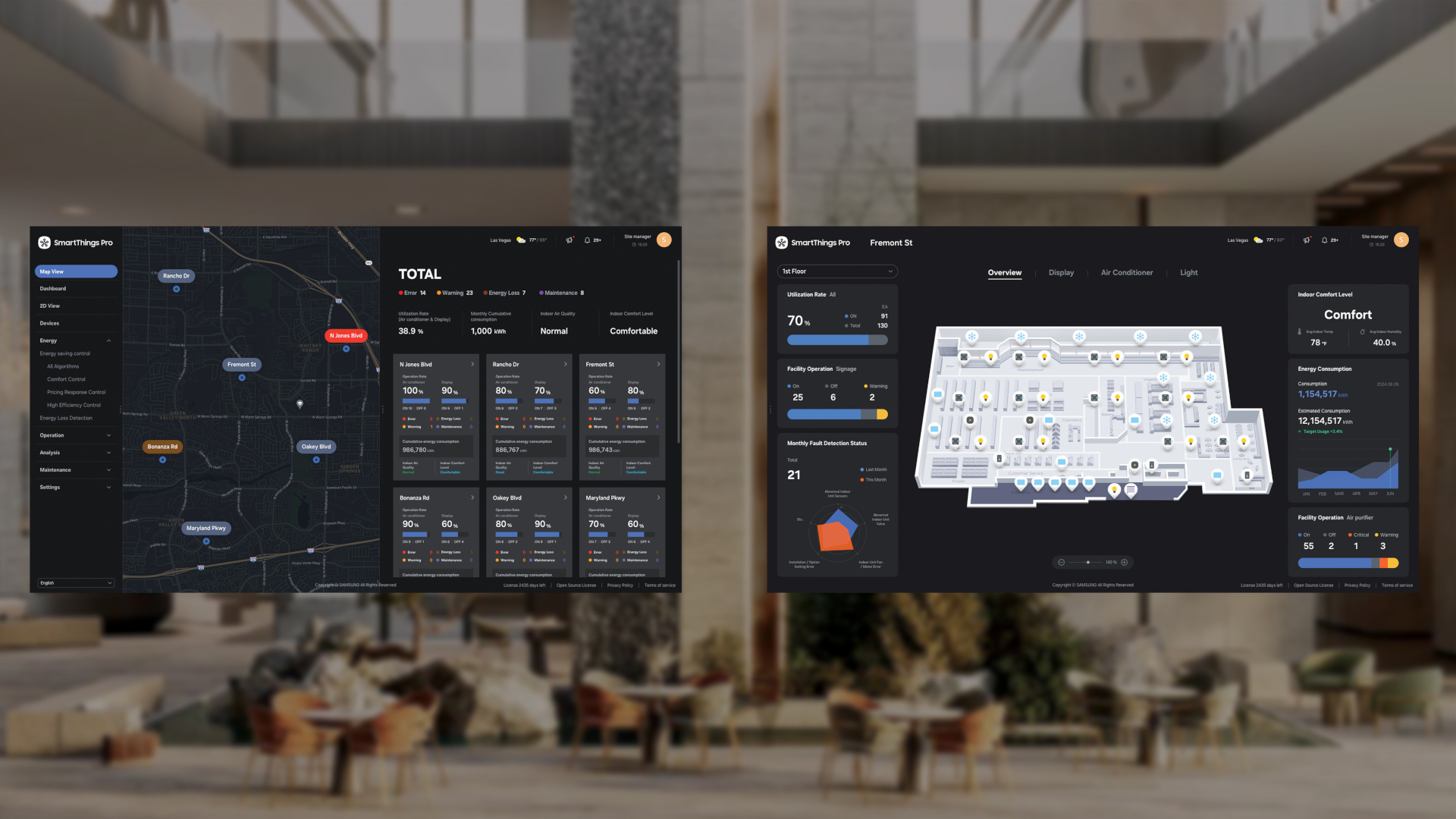
IoT Platform: More Intelligence Around the Screen
More than 140 million IoT devices from over 300 providers are already connected to Smart Things worldwide. Until now, the IoT ecosystem was geared towards the B2C market of smart homes. Since Smart Things is supporting the IoT standard Matter, the platform offers seamless interoperability with devices from Google, Apple, and Amazon. This makes Smart Things and Matter the most important open IoT ecosystems.
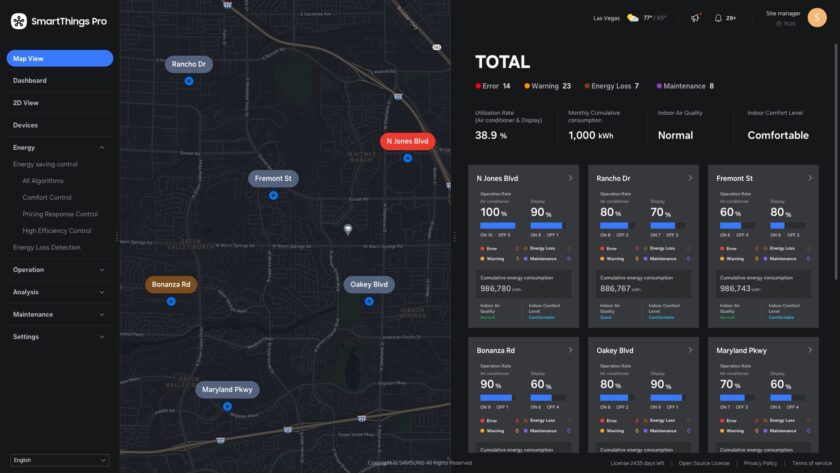
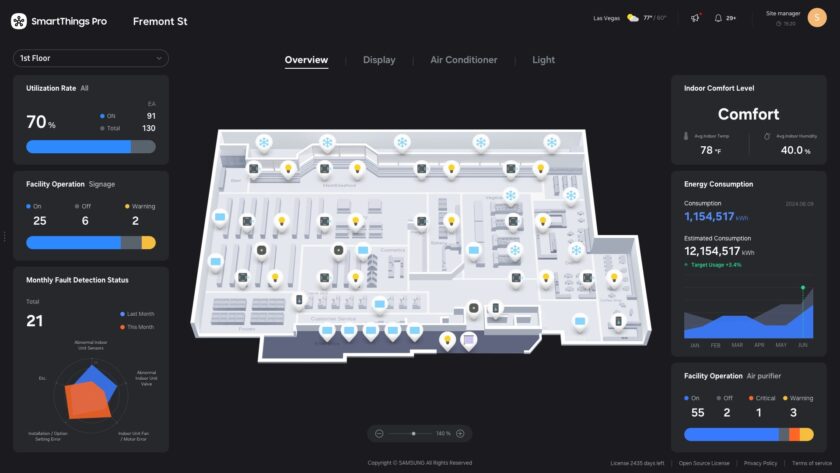
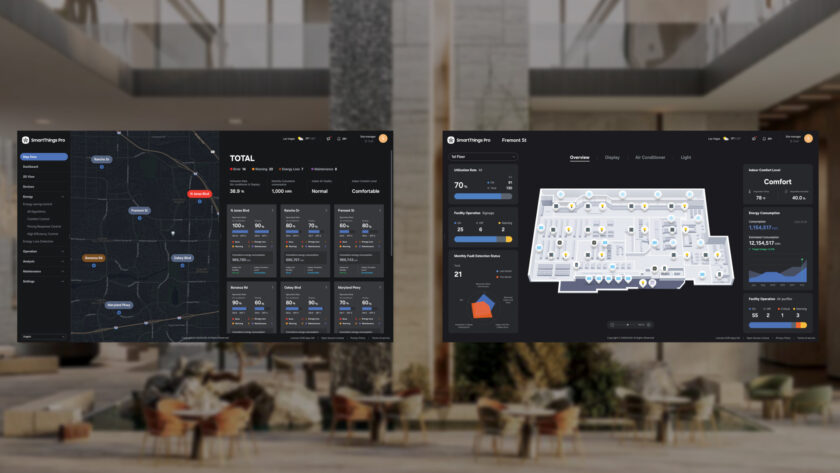
Smart Things Pro brings new intelligence to B2B
Now, Samsung is expanding the IoT ecosystem to B2B applications. Many standard consumer sensors (presence, light, temperature, movement, smart sockets, etc.) can also be integrated in digital signage for more intelligent and responsive touchpoint concepts.
This is how Samsung claims Smart Things Pro will boost networks:
- Sustainable Business – Monitor and Manage energy consumption of various smart devices connected to your screens by AI Energy Mode
- Automated Operations – Automatically adjust devices based on preset situations and repetitive routines, increasing operational efficiency
- Customer Experience – Personalized services based on customer data and preferences plus sensor-based interactions create a differentiated experience.
For Samsung, Smart Things Pro is intended to improve sustainability in B2B projects, enable automated processes and improve digital experiences. The integration and adaptation of Smart Things devices takes place via open APIs.
Smart Things Pro offers intelligent energy-saving technology for Samsung products with the AI Energy Mode that reduces energy consumption based on ambient brightness, content analysis, and motion detection. This means that Samsung displays and Samsung LEDs automatically adapt to the environment.
In addition, Smart Things Pro enables users to check the connection status of various IoT devices via an AI-supported dashboard. This dashboard is intended to enable users to use their devices more efficiently.
As a real IoT ecosystem, Smart Things Pro is not limited to visual solutions and retail tech, but also controls and monitors HVAC systems (air conditioning, heating and ventilation) and many other digital devices. Various environmental parameters such as temperature, humidity, and lighting can be operated and managed more effectively by linking various IoT products.
Sensors such as CCTV cameras for monitoring and control functions in production environments and commercial use can also be integrated, and daily configurations and settings can be automated in order to reduce overall operating costs.
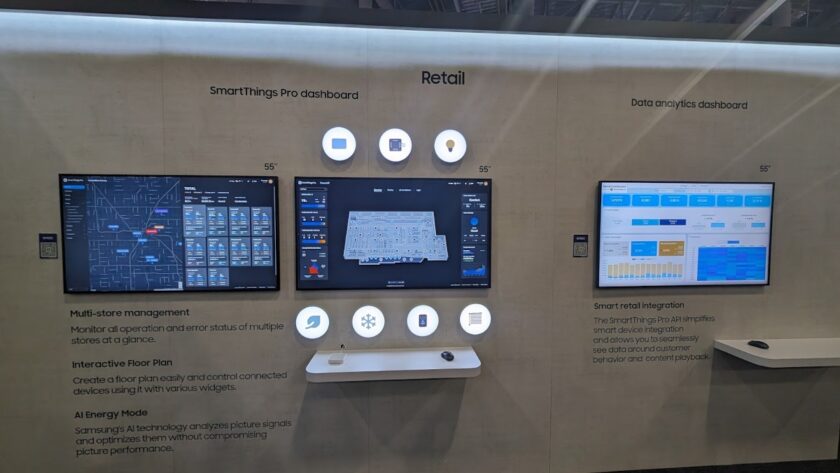
First partners on board
Samsung has already won its first ecosystem partners: Quividi integrates Samsung Smart Things Pro into its new retail analytics platform Vidi Center. Cisco presented API integrations with Cisco collaboration solutions at Infocomm, which can thus be integrated into the Cisco Webex Control Hub and Aqara developed a smart hotel experience based on Smart Things Pro
invidis opinion
At ISE, the launch of Smart Things Pro was almost lost in the fireworks of VXT announcements, partly also because there were more questions than answers for the digital signage industry. Almost half a year later, the offering and market positioning are more clearly defined.
Samsung is now bringing the Smart Things ecosystem with an installed base of more than a hundred million devices to the digital signage B2B world. Not as a kind of remote device management (RDM) for screens – VXT takes care of that – but to manage and interact with connected sensors and the surrounding technical infrastructure.
A typical Samsung strategy to bring highly scalable consumer technologies into the B2B portfolio. The new Smart Things Pro ecosystem can thus complement digital signage-specific sensor ecosystems such as those from Nexmosphere.

